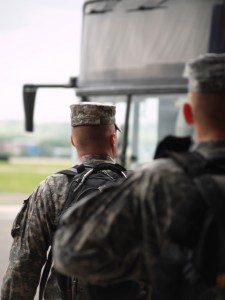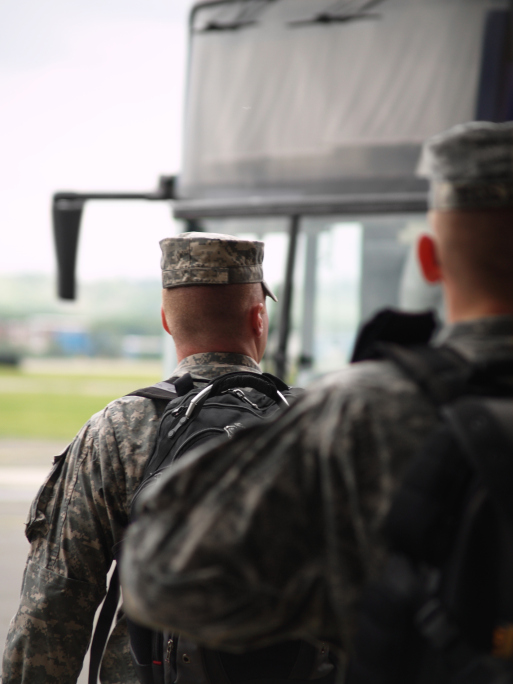
Faculty Member at American Military University
For all the right reasons, you decided to serve your country and volunteered for the armed forces. When you signed, despite your modesty, on those public holidays such as Independence Day and Veterans Day you enjoy flags flying, bands playing, picnics and parades and perhaps even a friendly “thanks for your service.” Sharing these moments with family and friends is rewarding. You are perfectly justified in a moment of pride for your service. You deserve all this and more. Life is good.
But serving isn’t all parades and picnics. If the anxiety and hassles of deployment or even temporary duty separation from loved ones is difficult, how will you feel during the holidays? How will they feel? Now that Thanksgiving is behind us, how did it feel being miles from that feast with family or missing that traditional backyard game of football with neighborhood friends? How can you possibly honor Hanukkah sitting in a ready room where the closest thing to a dreidel is a half-empty TicTac box (orange)? How excited are you to know you will be on the duty desk Christmas Day while half a world away your spouse and children are opening the presents you hope got there on time? Let’s face it; it is a bit depressing sometimes. Be prepared for this.
Begin with a simple, optimistic fact; it is a myth that suicide occurs more frequently during the holiday season. CDC’s National Center for Health Statistics reports that the suicide rate is, in fact, the lowest in December. So, begin knowing that fate is on your side. Do not expect to be depressed; expect to experience the joy of the season. Take this optimistic view from the beginning and you are off to a good start.
If you are away from home, ignoring the holiday is not the solution. You may be far from loved ones and boxes of traditional, family-heirloom symbols and decorations that convey comfort and tradition, but you are also surrounded by brothers and sisters in arms. Use this opportunity to focus on more interpersonal and spiritual connections. Reach out to those around you in your unit, especially those who seem to be isolating themselves, and plan some time together. Escape into the local culture and see how they celebrate the holidays. The important, optimistic view should be that taking the time to reach out to others during the holidays is a great way to feel good about you and to make others feel good about themselves.
If you have loved ones at home, the fact that you won’t be there in person does not mean you cannot be there, in spirit. If your tradition involves gift giving, sending cards or other activities, identify those that can be prepared early and left with someone to post or deliver at the appropriate time. Get a little extra satisfaction by handwriting a personalized message in your cards or spending the time to personally wrap, address and hide gifts.
Understand that in the near future you and your loved ones can look back on your service related absence with pride at the sacrifice that all made. Explain that they are a part of the team and that you will respect them for their sacrifices, as well. Instill a sense of pride in them and be sure that they understand their role and they are serving along with you. Make them heroes, as well.
Optimist that I am, the reality is that regardless of the season, suicide in the military is an important topic. Be a leader; look out for and include others. Learn to recognize the signs of depression that could lead to suicide. The American Society of Suicidology is a good place to start. Not last of all, do not ignore yourself. Allow yourself a little private celebration. Join others in thankfulness. If you are feeling depressed, talk to someone. The holidays will be over before we know it, but loved ones will still be there. Life really is good. Thank you for your service and remember that you are appreciated. Happy Holidays!
This article was originally published on our fellow APUS blog, InMilitary.com.
About the Author
Craig Gilman is currently an education coordinator and online adjunct faculty member with American Military University (AMU). He is a veteran who served in the Marine Corps as an infantry officer. Prior to joining AMU, Craig taught secondary social studies as a public school teacher in Virginia, international school in Seoul, Korea, and public middle school in Tokyo, Japan.

Comments are closed.